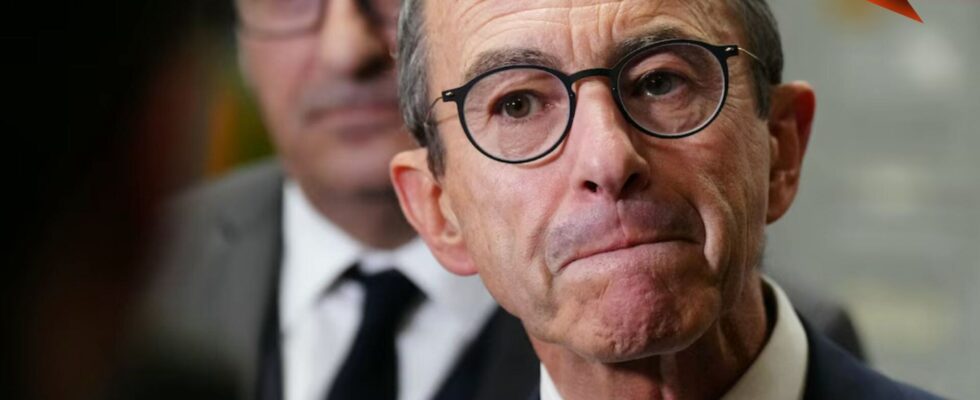The “at the same time” is definitely on the rocks. How far away it seems the time when ministers from the right and ministers from the left learned, good-natured and optimistic, to coexist under the tender eye of the young president Emmanuel Macron. The dissolution has blown everything apart, starting with the overtaking replaced, with the Barnier government, by the traditional and still lively right-left divide. Ultimately, politics is an eternal restart. Here is Bruno Retailleau, former boss of the right-wing senators, now effervescent Minister of the Interior, determined to have the last word in the war of words that opposes him to Didier Migaud, former president of the High Authority for Transparency in Public Life, appointed Minister of Justice. And between the two, Michel Barnier, already forced to intervene; already forced to choose?
The Prime Minister received the two ministers for breakfast on Thursday 26 September at Matignon in order to calm the rivalry between Place Beauvau and Vendôme. “It is normal that there are debates and visions that clash, but I am the one who decides in the end”, Michel Barnier reminded them in essence.
Then, the two ministers each expressed their vision with the aim, according to the participants, of feeding the general policy discourse. The attentive tenant of Matignon sometimes took notes. Bruno Retailleau insisted on the need, according to him, not to remain within the current penal framework, also pleading to extract oneself a little from current events and the Philippine affair which raises many questions: “We cannot make a good law if it is a law that only takes up the problems raised by this affair”, he declared. Didier Migaud, for his part, wanted to recall what works in criminal justice.
The Vendéen reaffirms his wish for legislative developments
As early as Monday, September 23, Bruno Retailleau denounced on TF1 a “right to non-execution of sentences”. In a strange game of reverse mirrors, Didier Migaud gave him the reply at the same time on France 2. “He must know that justice is independent in our country, and that it is something that is essential in a democracy.” The exchange of words continued the next day, still remotely. The Vendéen reaffirmed his wish for legislative changes, while his counterpart oscillated between firmness and irony. “I will have to be able to contribute to informing my colleague and we will have to be able to have discussions on this subject, constructive discussions.”
These frictions are inherent to both ministries, but take on an unprecedented ideological hue in this coalition. Bruno Retailleau is a man of the right, Didier Migaud comes from the Socialist Party. A loyalist of the tenant of Beauvau, certain that public opinion is behind the firmness of his boss, is almost delighted by this chemically pure duel. “In this case of a right-wing majority government, it happens that a Minister of Justice is simply prevented by the corporatism of the judges. Here, it is different. It is a chance for us when Migaud speaks.” Michel Barnier would like the tone to be lowered.
